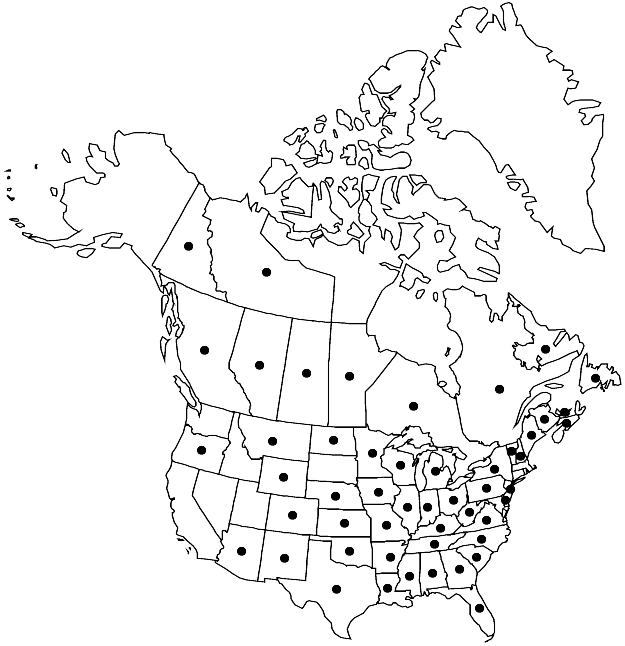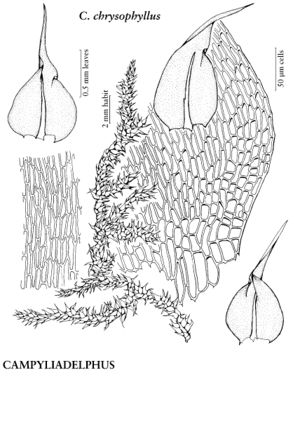Campyliadelphus chrysophyllus
J. Sci. Hiroshima Univ., Ser. B, Div. 2, Bot. 15: 264. 1976.
Stem leaves gradually or ± suddenly narrowed to apex, concave; acumen recurved in some leaves; alar cells many, region reaching from margin 30–65(–80)% distance to costa at insertion. Perichaetia with inner leaves gradually or ± suddenly narrowed to apex, plicate, margins entire, obtusely denticulate at shoulder, or with single obtuse teeth, apex acuminate, laminal cells smooth.
Habitat: Rock, soil, temporarily wet, calcareous or otherwise mineral-rich habitats
Elevation: low to high elevations
Distribution

Alta., B.C., Man., N.B., Nfld. and Labr., N.W.T., N.S., Ont., P.E.I., Que., Sask., Yukon, Ala., Ariz., Ark., Colo., Del., Fla., Ga., Ill., Ind., Iowa, Kans., Ky., La., Maine, Mich., Minn., Miss., Mo., Mont., Nebr., N.H., N.J., N.Mex., N.Y., N.C., N.Dak., Ohio, Okla., Oreg., Pa., S.C., Tenn., Tex., Vt., Va., W.Va., Wis., Wyo., Mexico, West Indies, Central America (Guatemala), n South America (Colombia), Eurasia, n Africa.
Discussion
Campyliadelphus chrysophyllus is distinct among the Campylium-like species in its usually single, long leaf costa (scattered specimens have shorter and double costae in at least some leaves), quadrate, ovate or transversely triangular alar regions consisting of relatively small cells, and basal cells being short-rectangular to short-linear and up to 10–18(–21) µm wide. The alar cell groups extend 35–65(–80)% of the distance from the margins to the costa at the insertion. Plants are rarely found above the tree line.
Specimens named var. brevifolium tend to be relatively large plants of Campyliadelphus chrysophyllum. Hypnum unicostatum Müller Hal. & Kindberg was mentioned by H. A. Crum and L. E. Anderson (1981) as a synonym of C. chrysophyllum, but the type material belongs to Pseudocampylium radicale (P. Beauvois) Vanderpoorten & Hedenäs.
Selected References
None.
